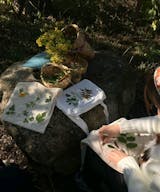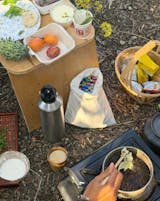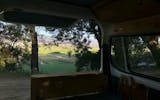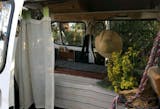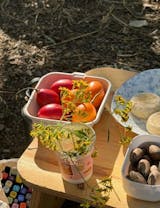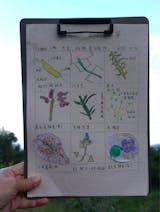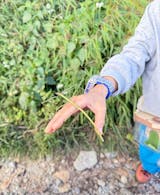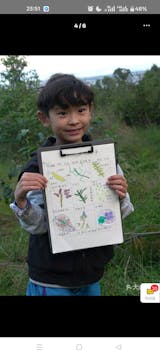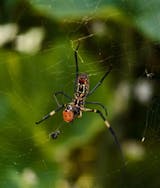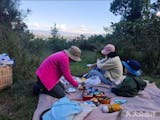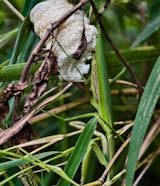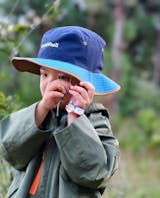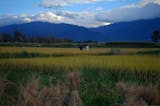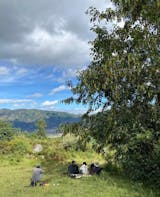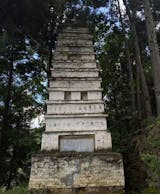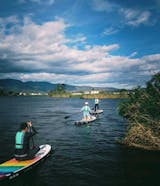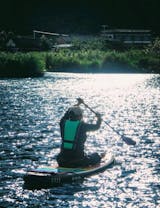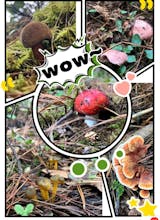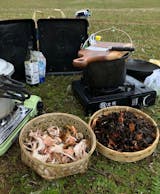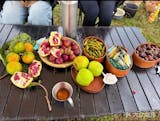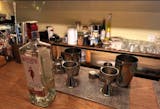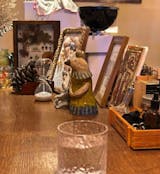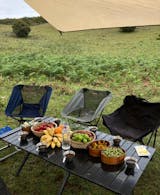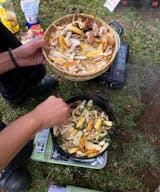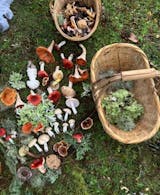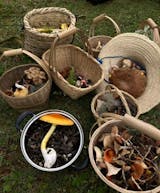
Jason | Rucheng
Free left that night, Xiaozhou said: A monk will come from Jizu Mountain to perform rituals and pray for the souls of the deceased. As soon as she called, the monk came down the mountain and drove over. Jizu Mountain is east of Dali Ancient City, bypassing Erhai Lake and Huoshan Mountain. The journey is 80 kilometers and takes two hours.
As soon as Xiaozhou said that, I knew roughly who he was. I was just not sure what to call him. Over the years, I have heard his Buddhist name after becoming a monk: Master Rucheng.
When he arrived near the house, it was already dark, and I went out to pick him up. He was walking up the slope, wearing a gray monk's robe in the night, with a thin and handsome face. I walked up to him and called him "Brother Meng", and I felt indescribable mixed feelings in my heart, and my eyes felt hot. He smiled and talked to me. After a paragraph, he still said his catchphrase: "It's great."
Apart from the monk's robe, his appearance looked no different from many years ago. He was still thin and dark, with an angular face. He was gentle to people, smiling, and had clear eyes.
When I met him, he was one of the owners of the September folk music bar on Renmin Road. Some people called him Brother Meng, and some called him Xiao Meng. The first late-night canteen I opened was on Huguo Road, just across a horizontal alley from September. He, Xiao Wei, and Song Jie often came to the restaurant to eat after work late at night. The guests of September often followed them and were my main customers at that time. September was the most popular folk music bar for permanent residents in Dali at that time. Many singers and musicians went there to play. Even some of them who were a little famous would improvise there like ordinary guests. Brother Meng also played guitar and sang. He was also sincere when interacting with younger newcomers, such as Xiaochun and other young people who had just arrived in Dali.
They often came to eat, and as time went by, we gradually got to know and trust each other better. Brother Meng was gentle and delicate, Xiao Wei was more emotional, and Song Jie was like an older sister. They were all kind to others. I was very happy to see them when they came to the restaurant. At that time, there were not many customers in my restaurant. I had just started the business and was still a bit immature in cooking. They never cared about whether the food was served faster or slower, or whether it was cooked this way or that way.
At that time, Wang Yong sold CDs at a stall in front of September and sometimes recited poems inside. With the development of tourism in Dali, he became famous and was once the number one stall owner in Dali. With Zhang Yang's short film "Life Elsewhere", many people came to him.
Many years later, I realized that he had a good life in those years, which was the most shining moment of his life. A large part of it was because the people of September had been protecting him and giving him a place to stay and a stage. Otherwise, with his rebellious and controversial personality and often extreme attitude towards others, he would have caused a lot of trouble and it would have been difficult for others to accept him. I guess he also gave the people of September a lot of headaches, but they just kept tolerating him. After that, Mengge, Xiaowei and Song Jie left Dali one after another, and September moved away from Renmin Road, and he lost his shelter and the people who could really care for him.
A year later, my restaurant moved to the bustling Renmin Road. With the advent of the Internet era and the popularity of Dali's niche culture, business got better and better, and so did September. Rapid changes always bring troubles and divisions. Two years later, I no longer liked running a restaurant, so I handed it over to Xiaochun. Later, I heard that Brother Meng became a monk at the Fangguang Temple on Jizu Mountain, and Xiaowei followed him to the nearby Hengyang Temple. Later, he became what everyone called "Master Rucheng".
In a few minutes, we quickly arrived at Free's residence. He nodded and greeted everyone, asked a few questions, asked Xiaozhou to fetch a bowl of water, and skillfully performed a simple ritual according to his method. There was a small detail in the middle. Yaoyao wanted to use the Tibetan Buddhist method because she is a Tibetan Buddhist disciple. He smiled and said: All is good. I thought to myself: That's great.
Before he got in the car and left, he gave me his rosary. I had never wanted a rosary before, but I was delighted to receive it.
Thinking of Meng Ge at that time, playing guitar, full of youth, singing touching songs in a low voice, I think that Master Rucheng now, wearing monk robes, is also equally touching. The difference may be that he himself is more free and peaceful.
Afterwards, one portion of Free's ashes was sent to Jizu Mountain and buried near the ruins of Huayan Temple, under a century-old cypress tree that Master Rucheng found. Because of Free's last period, he lived in Jizu Mountain for a few months. One portion was sent to Suosong Village in Tibet where he lived and scattered in the Yarlung Zangbo River. Another portion was scattered in Cangshan Mountain by Master Deng, Jiangcuo, and Yatou.




